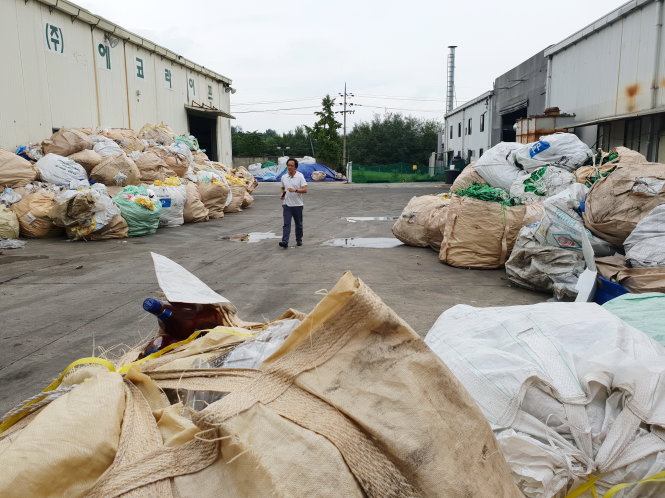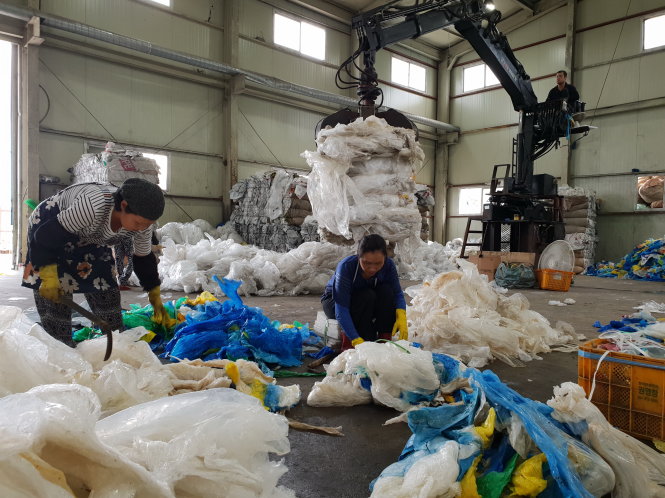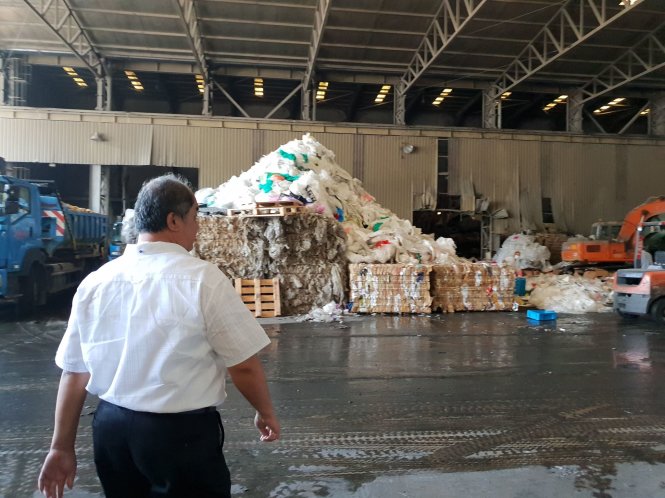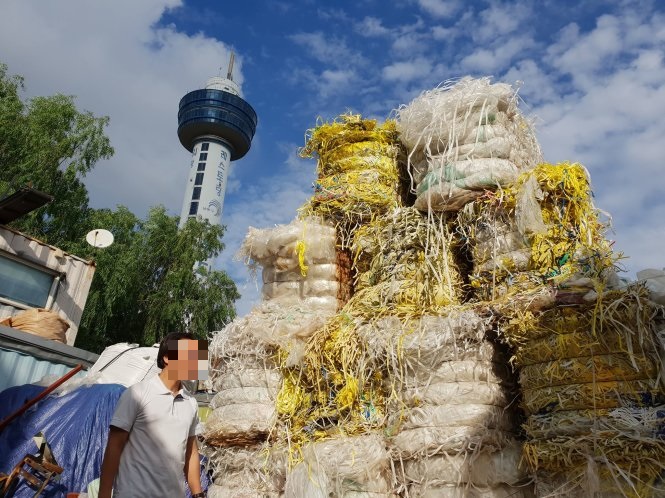An investigation by Tuoi Tre (Youth) newspaper has revealed that Vietnam had been importing substandard and untreated scrap that does not meet recycling requirements from local authorities.
The General Department of Vietnam Customs started to tighten customs clearance for the importation of scrap in June, resulting in thousands of containers of imported scrap materials stuck at Vietnamese seaports.
Statistics from the customs department showed that the Southeast Asian country imported about 385,000 metric tons of scrap in 2017, which was worth some US$71 million.
In the first six months of this year, approximately 278,000 metric tons of scrap, valued at $63 million, was brought into Vietnam.
The scrap is to meet several requirements and standards regarding their recyclability, otherwise the material is nothing but waste.
Tuoi Tre reporters have conducted a probe at some of the foreign companies whose scrap has recently been shipped to Vietnam, only to discover that many Vietnamese firms had imported a massive amount of garbage that had not been properly treated.
 |
| A Tuoi Tre reporter walks inside a scrap facility in South Korea. Photo: Tuoi Tre |
According to the government’s Decision No.73, only seven types of scrap are allowed to be imported into Vietnam, including those made of Polyethylene (PE), Polystyrene (PS), Polyvinyl chloride (PVC), and some other types of plastic.
A circular by the Ministry of Natural Resources and Environment also requires that the scrap be purified and shredded into pieces that are not larger than 10 centimeters.
‘It’s expensive to meet requirements’
In late August, the reporters paid a visit to the South Korean province of Gyeonggi, where multiple local companies have been collecting plastic scrap for export to Vietnam.
At one facility in the province’s Siheung City, which specializes in plastic bags, agricultural mulches, and plastic wires, the scrap was being pressed into different packages, each weighing about 500 kilograms.
A stench similar to the smell of garbage was sensed upon the journalists' entering the venue.
Inside a similar location in Hwaseong City, which covers about 300 square meters, four to five middle-aged women were classifying scrap materials, before a man pressed them into packages with a machine.
 |
| Plastic bags are classified at a scrap facility in South Korea. Photo: Tuoi Tre |
The scrap was collected from local recycle bins and was not properly treated, thus releasing an unpleasant smell.
The same issue was also noticeable in Cheonan City, Chungcheong Province.
In early September, hundreds of scrap shipments were discovered being left for a long time at the Incheon Harbor.
The shipments cannot be shipped to Vietnam after the country put a limit on its scrap importation, a port employee told Tuoi Tre.
According to Hong, a South Korean resident and insider of the business, the purifying and shredding process would require more cost.
“We only classify the scrap materials. If we had to clean, dry, and shred them, we would rather recycle them and turn them into plastic pellets, which are more valuable in the Korean market,” Hong elaborated.
Seo-Yeon, owner of a South Korean firm named K., said the company has at least four containers stuck at Cat Lai Seaport in Ho Chi Minh City due to tightened customs clearance policies.
Most of the shipments contain plastic bags that do not meet Vietnam’s import standards, while it is now unable to contact the receiver.
 |
| A scrap facility in Singapore. Photo: Tuoi Tre |
Earlier in June, the Tuoi Tre journalists also arrived in Singapore to investigate the situation at Crimson General Company, which had sold a large amount of scrap made of low-density polyethylene (LDPE) to a business named T. in the southern Vietnamese province of Long An in the first six months of 2018.
While customs documents showed that the scrap met all environmental standards, a source close to Tuoi Tre stated otherwise.
Lim, owner of Crimson General, said that his company had been selling scrap to T., but the material had not been purified and cut into small pieces.
“It would cost me much more,” Lim explained.
As countless scrap containers have been stuck in Vietnam since June, businesses in South Korea and Singapore are now more cautious.
Buyers can only purchase their scrap directly at their facilities and will have to cover all expenses for licenses and shipping to Vietnam.
Scrap from the two countries currently sells for $350 to $400 per metric ton, about 30 percent cheaper than in the past, according to Hong.
Like us on Facebook or follow us on Twitter to get the latest news about Vietnam!

















































